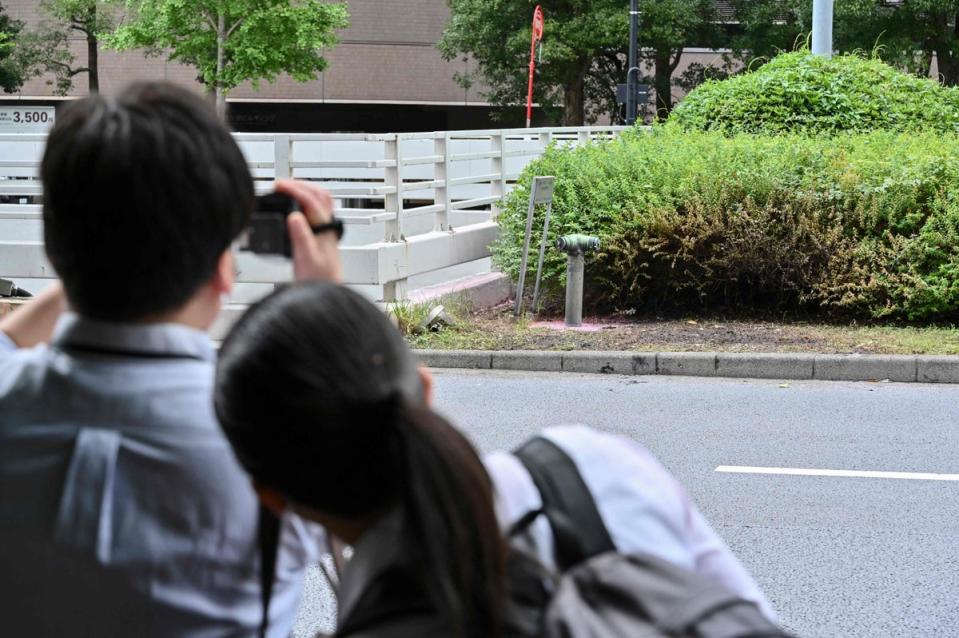Japanese man ‘sets himself ablaze’ to protest Shinzo Abe’s state funeral
- Oops!Something went wrong.Please try again later.
A man in Japan was rushed to a hospital after he set himself on fire near the prime minister’s office to oppose Shinzo Abe’s state funeral, said public broadcaster NHK news.
The man in his 70s, who has not been identified yet, suffered burn injuries on his entire body and a police officer who tried to extinguish the blaze was also injured.
The incident happened on Wednesday morning in Tokyo’s Kasumigaseki district, where most of the country’s government ministries and Diet, or parliament, building are located.
“I have heard that police found a man who had suffered burns near the cabinet office this morning before 7am and I’m aware that police are investigating,” Japan’s chief cabinet secretary Hirokazu Matsuno told reporters.
The man was unconscious when he was first found by police but later told police that he doused himself in oil before igniting the fire, reported NHK.
A letter about Mr Abe’s state funeral – slated for 27 September – was found nearby with the words “I strongly oppose it”, Kyodo news reported.
The government is yet to confirm if the man burnt himself in protest. The current condition of the man remains unknown.
The Japanese government had announced it will hold the state funeral at a projected cost of up to $12m to the public because of hefty security and reception fees to host foreign dignitaries.
Abe was the country’s longest-serving prime minister and was the president of the ruling Liberal Democratic Party. He assassinated on 8 July while giving a campaign speech.

World leaders mourned and condemned his death in a country with a minimal record of political violence and gun crime but many have called for authorities to be lenient on the man suspected of the assassination.
The state funeral is not an established practice in Japan and is done only for members of the imperial family. It was, however, also done for former prime minister Shigeru Yoshida in 1967.
The event for Abe has been criticised by the public in recent months because of the cost incurred for the elaborate arrangements to be made.
Recent polls have shown that the majority of people in Japan are unhappy with the expenditure while other oppose it due to Abe’s occasionally divisive politics.
Abe’s death has also started a conversation around links between him and a religious group that began in South Korea after the suspected shooter, Tetsuya Yamagami, was arrested.
Mr Yamagami has alleged he was furious about Abe’s alleged ties to the Unification Church, which has pursued relationships with politically conservative groups and leaders in not just Japan but also the US and Europe.
The Unification Church has faced allegations of unethically recruiting people and brainwashing them into making huge donations for decades, since the 1980s, something Mr Yamagami said made his family destitute as his mother donated savings to the church.

